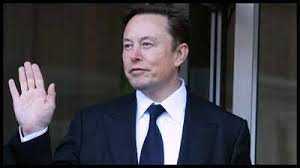Musk says Tesla and Samsung Electronics have signed a $16.5 billion chip supply deal
This deal of Elon Musk reflects the future goal and also shows market commitment. This is not just a deal but the beginning of the EV revolution which will now move very fast. If he wants, he can also include AI Grok in this car.
Historic deal of Tesla and Samsung Electronics
Under the visionary leadership of Elon Musk, Tesla has always set new trends in the automotive and energy sectors. Now, in a new and historic development, Tesla has signed a mega chip supply deal of $16.5 billion with Samsung Electronics. This deal is not only a big leap for the electric vehicle (EV) industry but also signals a new direction in the global semiconductor ecosystem. This agreement supports the strategic ambitions of both high tech giants and strengthens the foundation for a future driven by innovation.
With the demand for chips in the EV sector growing rapidly, this deal is important from many angles in our context. Samsung, one of the world’s top semiconductor manufacturers, will now supply advanced logic chips for Tesla’s autonomous and smart vehicles. Will the deal accelerate the development of future mobility and AI-powered car systems even faster? Let’s understand the story behind this entire deal and also see what its impact is going to be on the whole world.
A big deal in the era of chip shortage
In the last few years, the shortage of semiconductor chips across the world has greatly affected the automobile and electronics industries. Since the COVID-19 pandemic, there have been disruptions in high chip manufacturing and supply chain systems. In such a situation, Tesla’s tie-up with a reliable and technologically advanced partner like Samsung can be called a masterstroke.
This deal will ensure that Tesla will get a stable supply of advanced logic chips for its EVs for the next few years. The chips power Tesla’s autopilot systems, real-time decision-making AI algorithms, EV power management and battery control systems. When chip availability is secured, the chances of production delays are also greatly reduced, which directly impacts customer satisfaction and the company’s profitability.
A perfect blend of technology and vision
Samsung Electronics has decades of experience in chip design, manufacturing and testing. Samsung’s 4nm (nanometer) technology will create customized logic chips for Tesla, which means Tesla vehicles will feature even more powerful, efficient and energy-efficient processors. These chips will ensure high-speed data processing as well as low power consumption, a quality that is very important for a modern EV.
Tesla’s future models will have deep integration of AI and machine learning algorithms. This means vehicles will become even more intelligent – features such as road safety, smart navigation, traffic prediction and driver behavior optimization will be even better. Samsung’s chips will play a key role in turning this vision into reality. This partnership will take EV technology to a new level by becoming a unique blend of future mobility and digital intelligence.
Tesla’s position will be strengthened in the global EV market
Tesla has remained the leader in the EV market so far, but competition is also increasing day by day. Players like China’s BYD, Germany’s Volkswagen and Hyundai Motors are also aggressively expanding in the EV market. In such a situation, Tesla’s move is a concrete effort to maintain its technology edge.
After the deal with Samsung, the chips used in Tesla’s vehicles will now be even more customized and optimized, which will significantly improve the quality of the product. Tesla will now have more confidence in meeting its production targets globally. Along with this, this deal also protects Tesla from the risk of chip production dependence – when all competitors are facing chip shortage, Tesla will have an assured chip supply chain.
Strategic benefits for Samsung too
While Tesla will get chips from this deal, this deal is also a big success for Samsung. The global chip industry is dominated by companies like Intel, TSMC and Nvidia. Samsung is making aggressive investments to further strengthen its position in the race. After partnering with Tesla, Samsung’s semiconductor division will get a new growth push.
Samsung will also get a chance to expand its reach in the automotive chip industry. The global market size of automotive chips is expected to become a trillion-dollar industry by 2028. This deal is a long-term strategic move for Samsung, with the company making a deep entry into a new industrial vertical. This tie-up will also impact Samsung’s existing customer base, where it can attract more auto brands in the future.
What will be the impact on the Indian and Asian markets?

This partnership between Tesla and Samsung is also an important signal for the Asia-Pacific region. Asia, especially South Korea, Japan, Taiwan and India, have become central hubs in the global chip industry. Samsung has a major manufacturing facility in Korea and Tesla also has long-term plans to set up an EV manufacturing facility in India.